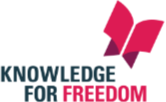Each program designs its own syllabus, composed of transformative texts in the humanities that are connected by questions about the nature of government, freedom, and democracy. Transformative texts are ones that have shaped the world and have an enduring ability to transform individual lives by the power of their ideas and expression. Browse or search our current syllabi for inspiration in building your own program syllabus.
Search
Yale University
The theme of this two-week course is “citizenship and the city.” In a mix of genres from philosophical dialogues and tragic plays to social theory, poetry, and public oratory, the texts raise important questions about what happens when humans live together in cities.
Columbia University
This three-week syllabus begins with Ancient Greece, followed by the European Enlightenment and American founding texts, and concludes with nineteenth and twentieth-century authors. The texts are primarily works of political philosophy and touch on topics such as civil disobedience, citizenship, social contract theory, slavery and freedom, race, gender, migration, and education.
Ashbrook Center
In this two-week course, which includes weekend programming, the seminar is split into two morning and one afternoon session, with readings assigned specifically for each. In the first week, students read ancient texts including The Epic of Gilgamesh, the Bible, Homer’s Iliad, and Livy’s The Rise of Rome, while in the second week students read texts from the fifth to twentieth centuries with texts by Augustine, Shakespeare, Douglass and DuBois.
Washington University at St. Louis
This four-week, for-credit course meets twice a week to discuss texts in history, philosophy, religion, political thought, and literature in examining one central question: how can authors of the past inform our understanding of liberty and self-governance today?
Dickinson College
In this three-week, for-credit course, students evaluate the history, philosophy, and legacy of slavery in the United States from Aristotle and John Locke to Toni Morrison and Colson Whitehead. Texts include philosophical treatises, letters, debates, court cases, speeches, films, visual art, and fiction. Students in the course write blog posts and close reading responses which are featured on the students’ personal website portfolios at the end of the summer.
George Fox University
Latina/o students who participate in this two-week residential program have an option of doing all of the course readings in either English or Spanish. Texts span ancient Greece, medieval Spain, early modern England, to contemporary America. The syllabus asks major questions about how students understand their roles in their communities, what they owe to others, and how education can prepare them for lives of civic involvement and leadership.
Ursinus College
In this two-week seminar, students begin with the Declaration of Independence, followed by American founding documents before turning to Abraham Lincoln, the U.S. Constitution, and the problems of slavery, race, equality, and freedom in 19th Century America. The final readings explore Plato and Plutarch’s notions of citizenship in Ancient Greece in conversation with those of Martin Luther King, Jr. from his jail cell in Birmingham, Alabama.
University of Rochester
In this two-week syllabus morning lectures are often followed by afternoon screenings of related films. The syllabus opens with major questions about human nature, authority, liberty, and democracy in the first week before exploring the American experience for Black Americans, Native Americans, and women. One major question raised in both weeks is how to think critically, both individually and collectively.
